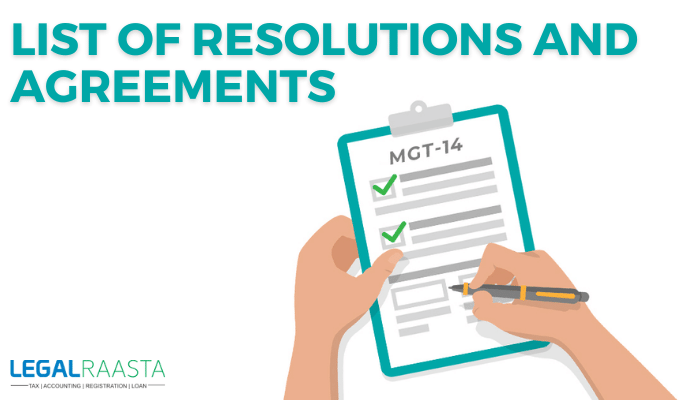CARO 2016: Requirements of “Companies Auditor Report Order”
Section 143 of the Companies Act 2013 requires reporting on CARO. It states that certain class or description of companies shall include a statement on a few, particularly specified matters. CARO 2016 mandates that the auditor’s report of these specified companies must include this statement. In other words, this order lists down the matters on which an auditor is required to report. Requirements concerning Auditor’s Report, have been provided under the Companies Auditor Report Order (CARO) Rules. Section 143(11) provides explanations and clarifications on these specified matters, which the auditors are required to report. It includes specific guidance on each clause of the Order, relevant provisions of the Companies Act, 2013, etc.Applicability of this order
[caption id="attachment_19879" align="aligncenter" width="476"] CARO 2016: Applicability of CARO 2016: LegalRaasta[/caption]
The applicability of CARO 2016 can be better understood by going through those companies that are excluded from its purview. The companies which have been exempted are explained below with detail. Hence, Auditing Requirements for such companies need not follow CARO requirement.
CARO 2016: Applicability of CARO 2016: LegalRaasta[/caption]
The applicability of CARO 2016 can be better understood by going through those companies that are excluded from its purview. The companies which have been exempted are explained below with detail. Hence, Auditing Requirements for such companies need not follow CARO requirement.
- Banking Companies, defined under section 5(c) of the Banking Regulation Act, 1949,
- Insurance Companies, under the Insurance Act, 1938,
- Section 8 Company or the Companies Incorporated u/s 8 of the Companies Act, 2013,
- One Person Company, formed under section 2(62) of the Companies Act, 2013
- Small Companies, as defined under 2(85) of the Companies Act, 2013
- Private Limited Companies that are not a holding or a subsidiary company of any public company,
- Having a total paid-up capital + reserves + surplus, not more than Rs. 1 crore,
- When total borrowings from any bank or any financial institution at any point during the financial year does not exceed Rs. 1 crore,
- When the total revenue does not Rs. 10 crores during the financial year.
- Those Companies that have a paid-up capital of more than Rs. 1 crore,
- Companies with a borrowing of more than Rs.1 crore from any bank or financial institution at any point of time during the financial year,
- Any subsidiary or holding company,
- Companies with total revenue exceeding Rs. 10 crore during the financial year.
- A Foreign Company, defined u/s 2(42) of companies act 2013. Foreign company meaning any Corporate Entity whose Company Registration was undertaken outside India which:
- Has a place of business in India, whether by itself or through an agent, physically or through an electronic mode, and
- Conduct any business activity in India in any manner.
Specified Matters to be included in CARO 2016 Report
Below are major areas that have to be provided in the Auditor Report under CARO. If the answer to any of the questions is unfavourable or qualified, the auditor’s report must also state the basis for generating such unfavourable or qualified answer. Moreover, if the auditor is unable to express any opinion on any specified matter, then the report must indicate the fact. Along with the reasons as to why it is not possible for him to present an opinion on it. I. Fixed Assets Following matters are to be included in the Auditor’s Report relating to the Fixed Assets of the company:- Proper Records: Is the company maintaining proper records showing full particulars? The particulars must include quantitative details and situation of the fixed assets.
- Physical Verification: Whether its fixed assets have been physically verified by the management at reasonable intervals. These intervals can vary from asset to asset. Were they in the same condition as stated in the bookkeeping and accounting, at the time of the verification? If any material discrepancy was found, whether the same have been properly dealt with, in the books?
- Title Deeds: Whether the title deeds of the immovable property is in the name of the company? If not, provide the details, thereof.
- Whether physical verification of the inventory has been conducted? To be done at regular intervals by the management. And if any material discrepancies were noticed during the verification, whether the same have been properly accounted for?
- Whether proper records of incoming and outgoing of inventory has been maintained?
- Whether the terms and conditions of granting the loan are not prejudicial to the interest of the company?
- If the repayments are proper and within the stipulated time?
- Whether the amount overdue for more than 90 days has been reported? And the steps taken by the company to recover the amount have been reasonable?
- If the Directives/Orders issued by the Reserve Bank of India have been complied with? At the time of accepting deposits.
- The provisions of Section 73 to 76 or any other provisions of Companies Act, 2013, as applicable.
- Any order that has been passed by NCLT, Company Law Board (CLB) or any other court or tribunal.
- If any non-compliance, the nature of contraventions must be reported.
- Employment provident fund
- Payment towards ESIC
- Income Tax
- Sales Tax or VAT
- Service Tax
- GST
- Custom Duty
- Excise Duty
CARO 2016 vs CARO 2015
[caption id="attachment_19878" align="aligncenter" width="481"] CARO 2016: CARO 2016 vs CARO 2015: Legal Raasta[/caption]
The MCA in the CARO 2016 order has made some changes to the requirements, from the CARO 2015. It now requires the following information to be included:
CARO 2016: CARO 2016 vs CARO 2015: Legal Raasta[/caption]
The MCA in the CARO 2016 order has made some changes to the requirements, from the CARO 2015. It now requires the following information to be included:
- Fixed Assets details,
- Details about Inventory & inventory management,
- Loans to related/associated parties,
- Loan Guarantee Security,
- Deposits,
- Cost Records,
- Statutory Dues,
- Repayment of loan,
- Term loans,
- Fraud in Board Reports or any other reporting,
- Managerial Remuneration – (Newly introduced in CARO 2016),
- Nidhi Company – (Newly introduced in CARO 2016),
- Related party transaction – (Newly introduced in CARO 2016),
- Private placement – (Newly introduced in CARO 2016),
- Non-cash transaction – (Newly introduced in CARO 2016),
-
Non Banking Financial Company or NBFC – (Newly introduced in CARO 2016)
- Adequate internal control (Not required from CARO 2016),
- Accumulated Losses (Not Required from CARO 2016),
- Guarantees (Not Required from CARO 2016).
Related Articles:ROC Full Form| Functions | Compliances
Digital Signature: Types and usage, Documents Required, Procedure









